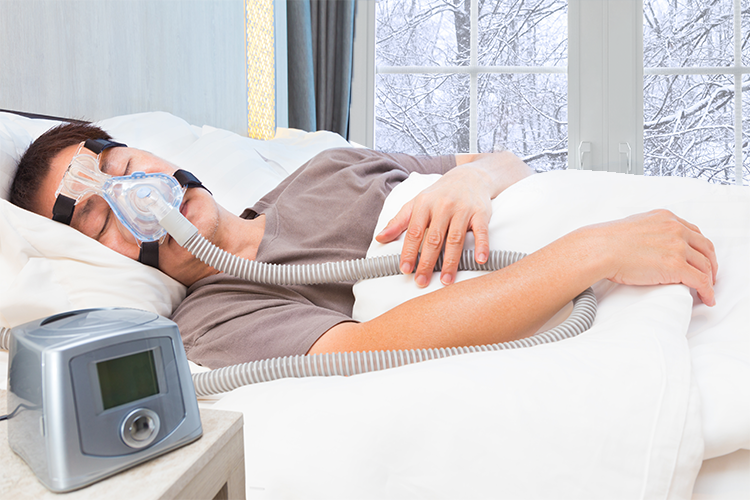Sixty percent of people with obstructive sleep apnea (OSA) also have GERD, suggesting a possible relationship between the two conditions.
If you suffer with GERD, you know the agony may radiate from your chest all the way up to your throat and back again. Nighttime GERD symptoms are typically the most debilitating and distressing.
Insomnia caused by untreated acid reflux. Trouble falling asleep and waking up at night is a common ailment. These sleep issues may be disregarded as a normal side effect of nocturnal GERD if you’ve never been tested for sleep apnea, but they may also be an indication of undiagnosed sleep apnea. Get more about sleep apnea diagnosing on https://store.airliquidehealthcare.com.au/en/sleep-apnea
Numerous studies have found that when sleep apnea is treated, GERD symptoms disappear – without medication – improving both disorders, which is good news.
Everything you need to know about nocturnal GERD, including how sleep apnea may be to blame for your GERD and nighttime GERD symptoms and what can be done about it, is covered here.
Understanding what GERD is all about.
Gastroesophageal reflux disease, or GERD, is a disorder in which acid from the stomach runs back up into the oesophagus on a continuous basis. Many things can lead to GERD, such as:
Many factors, including but not limited to: an unhealthy diet, being overweight or obese, being pregnant, certain bacteria, and hiatal hernias, can contribute to acid reflux.

The lower esophageal sphincter (LES) is a muscle located between your stomach and oesophagus. The LES is designed to function as the gateway between the oesophagus and the stomach, allowing food to enter the stomach for digestion.
In addition to these, people with GERD may also have chest discomfort, nausea, a persistent cough, or a hoarse voice. Also associated with respiratory symptoms such chronic coughing, wheezing, and a lack of lung capacity. A lot of people report that these symptoms are at their worst when they go to bed.
Distinguishing Between Acid Reflux and GERD
Heartburn is the most frequent symptom of acid reflux and affects up to 20% of adult Australians at least once a week. Although the terms are commonly used interchangeably, acid reflux and GERD are not the same thing. Gastroesophageal reflux (GER) is another name for GERD.
It’s normal to get heartburn after a heavy meal or after eating too many foods that are difficult to digest, but if it happens frequently, you may have gastroesophageal reflux disease (GERD).
When ignored, GERD can erode the esophageal lining and lead to complications like Barrett’s Esophagus and even esophageal cancer.
See Also: Does the colder weather make sleep apnea worse?
Sleeping Difficulties Due to Heartburn or Other GERD Symptoms
Daytime and nighttime symptoms of GERD are equally common. Seventy to seventy-five percent of people with GERD report having heartburn at night, making it extremely uncommon for someone to suffer reflux just during the day.
Although it is possible to have GERD without heartburn, the most frequent symptoms are regurgitation and heartburn. Additionally, you may experience chest pain, difficulty swallowing, and morning hoarseness. Experts in the field of gastroenterology agree that overnight heartburn is a sure sign of gastroesophageal reflux (GER) or nocturnal reflux.
What is the Role of CPAP Therapy in Treating GERD?
Yes, several studies have shown that using a CPAP machine at night can significantly lessen the intensity and frequency of GERD symptoms. The effects of GERD and sleep apnea can be cyclical, so it’s best to treat both conditions together.
Apneas and hypopneas are avoided with CPAP treatment (partial obstructions of the airway). Many of the symptoms of obstructive sleep apnea, such as acid reflux, can be eliminated or greatly diminished by minimising these blockages. In addition to increasing blood pressure, CPAP also raises the pressure in the chest. The oesophagus receives this pressure and is thus protected against acid reflux. As air pressure is increased in the airways, symptoms tend to improve.
According to one research, CPAP therapy can significantly cut down on acid reflux, with users reporting a 60% reduction in heartburn symptoms. Results from the study also demonstrated that maintaining CPAP treatment resulted in much less heartburn.
The continuous positive airway pressure (CPAP) therapy has shown to be a successful and well-liked treatment option for sleep apnea. Seeing that a single therapy can help with both GERD and sleep problems is promising for those who suffer from both disorders.

Care for Acid Reflux and Sleep Disorders
Many patients live with sleep apnea and gastroesophageal reflux disease (GERD) for years before receiving a diagnosis. One can better gauge when it is time to seek diagnosis and treatment if they are aware of the signs to look out for.
Fortunately, CPAP is a viable therapy option for those who suffer from both GERD and sleep apnea. Adjustments to one’s way of life that are generally positive are also helpful. The first piece of advice is very helpful for those who are coping with obstructive sleep apnea and gastroesophageal reflux disease. In addition to your doctor’s treatment suggestions, consider steps two and three if your sleep study or sleep apnea test shows OSA is not to blame for your nocturnal GERD.
Being overweight or obese greatly increases your risk of developing both sleep apnea and GERD. By reducing the strain on your stomach and diaphragm, weight loss can help alleviate GERD and sleep apnea.
The best method to maintain a healthy weight and manage your symptoms is to eat a nutritious, well-balanced diet. Don’t stuff yourself right before night with a huge dinner.
Alcohol and caffeine Citrus fruits and tomatoes and other acidic foods
Secondly, when you lay flat on your back, acid from your stomach can more easily wash up into your oesophagus and throat, exacerbating your reflux symptoms. This might cause you to wake up with a sore throat in the morning, have an acidic taste in your mouth, or even cause you to choke or gag in your sleep.
You can alleviate overnight GERD symptoms by lying on your back while lifting your upper body to a comfortable inclination. This is because gravity will be pushing against stomach acid as it tries to go up your oesophagus now that it is higher than your stomach.
However, a particular, wedge-shaped cushion is required for this. Regular pillows are just good for propping up your head, not your whole upper body. In order to achieve the best effects, a thick-topped wedge cushion should be used.
Third, if you suffer with GERD at night, sleeping on your left side can help.
As was previously noted, resting on your back might aggravate GERD symptoms. If sleeping with your head and shoulders propped up is too unpleasant, consider switching to the left side of your bed instead.
Because your oesophagus is now higher than your stomach, gravity has an easier time keeping your stomach’s contents where they belong. Snoring is also much reduced when sleeping on one’s side.
However, the benefits of sleeping on your left side are not shared by sleeping on your right. In reality, the reverse is sometimes the case. Lying on your right side, like sleeping flat on your back, might increase the likelihood of reflux, which is not helpful in relieving your nocturnal discomfort. If you don’t prefer sleeping on your back with a wedge pillow, the left side is the best option.
Though making some healthy lifestyle adjustments can help a lot with GERD, it’s important to note that obstructive sleep apnea (OSA) therapy helps GERD even if OSA is misdiagnosed or untreated. Continuous positive airway pressure (CPAP), the gold standard therapy for OSA, has been proven to decrease the amount of time that acid spends in the oesophagus over the course of a day.
Knowing When to Seek the Advice of a Professional
The importance of seeking a consultation and examination cannot be overstated if you have symptoms of gastric reflux and think they could be connected to obstructive sleep apnea or another sleep condition. Contact sleep specialist at Air Liquide Healthcare today if, in addition to GERD, you also have any of the other risk factors for sleep apnea.
